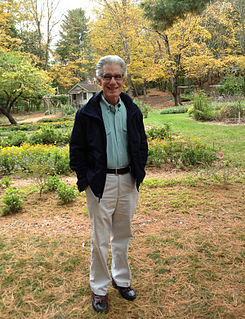A Quote by Carl Jung
The principle aim of psychotherapy is not to transport one to an impossible state of happiness, but to help (the client) acquire steadfastness and patience in the face of suffering.
Related Quotes
Philosophers should consider the fact that the greatest happiness principle can easily be made an excuse for a benevolent dictatorship. We should replace it by a more modest and more realistic principle - the principle that the fight against avoidable misery should be a recognized aim of public policy, while the increase of happiness should be left, in the main, to private initiative.
It is no wonder if, under the pressure of these possibilities of suffering, men are accustomed to moderate their claims to happiness - just as the pleasure principle itself, indeed, under the influence of the external world, changed into the more modest reality principle -, if a man thinks himself happy merely to have escaped unhappiness or to have survived his suffering, and if in general the task of avoiding suffering pushes that of obtaining pleasure into the background.
One strand of psychotherapy is certainly to help relieve suffering, which is a genuine medical concern. If someone is bleeding, you want to stop the bleeding. Another medical aspect is the treatment of chronic complaints that are disabling in some way. And many of our troubles are chronic. Life is chronic. So there is a reasonable, sensible, medical side to psychotherapy.
What comes to a person in his or her life, however difficult it may be, perhaps will help a person move closer to God. The response to tribulation is abr, which is patience, perseverance, steadfastness, and resolve. All?h loves the patient; part of the reason the tribulation comes is to draw the quality of patience out of them - He loves this quality.
Happiness is not something you have in your hands; it's something you carry in your heart. Happiness is one thing that multiplies by division. Happiness is that peculiar sensation you acquire when you are too busy to be miserable. Happiness is that state of consciousness which proceeds from the achievement of one's values.
There is no joy for someone who has no sorrow.
There is no pleasure for the one who has no patience
No bliss for someone with no misery
and no rest for the one with no fatigue.
When someone is a little tired,
he has long rest.
When he endures the difficulty of steadfastness for a time,
that leads him to eternal life.
All that the people of eternal bliss
are in is steadfastness for a time.
The world is full of suffering. Birth is suffering, decre- pitude is suffering, sickness and death are sufferings. To face a man of hatred is suffering, to be separated from a beloved one is suffering, to be vainly struggling to satisfy one's needs is suffering. In fact, life that is not free from desire and passion is always involved with suffering.
No matter how many possessions we acquire, they will not provide us with any lasting happiness and freedom. On the contrary, it is often our pursuit of material possessions that causes our problems. If we want ultimate happiness and freedom from suffering, we must engage in the supreme practices of training the mind. There is no other way.



































